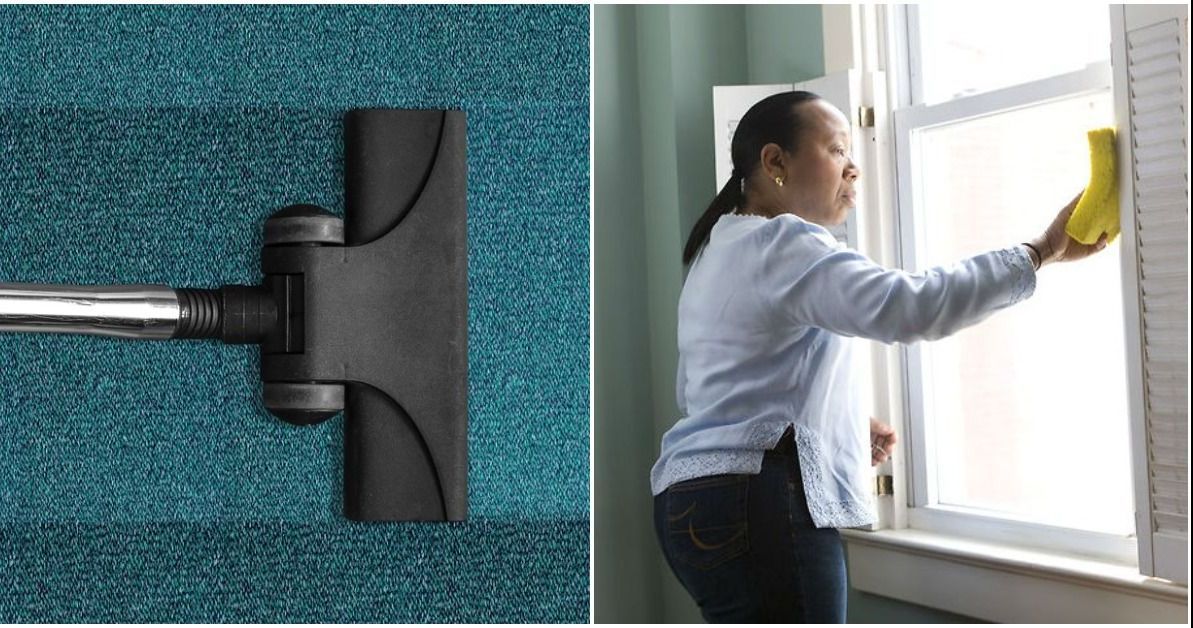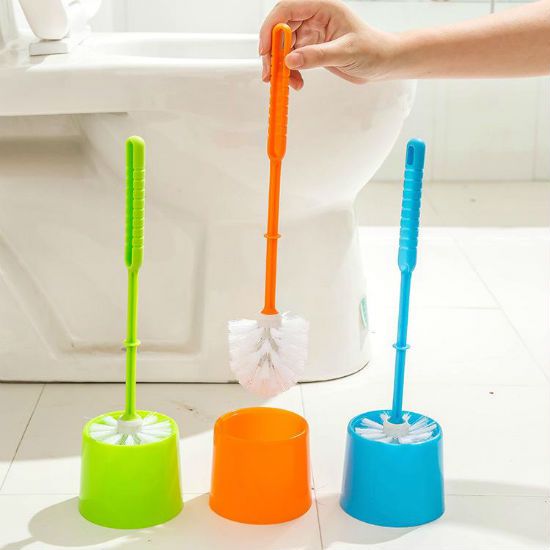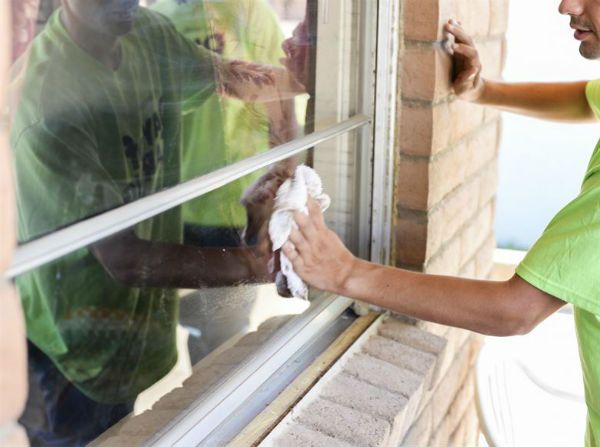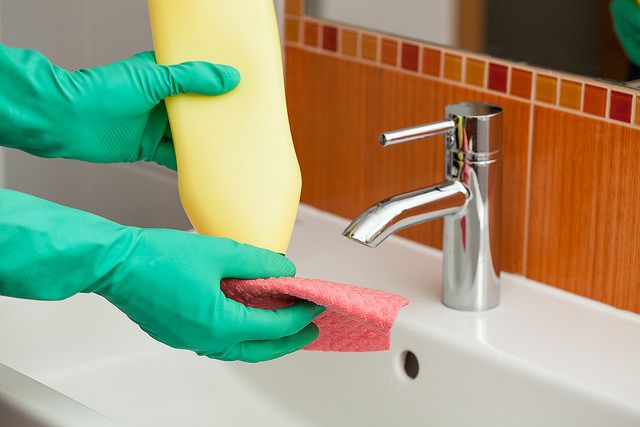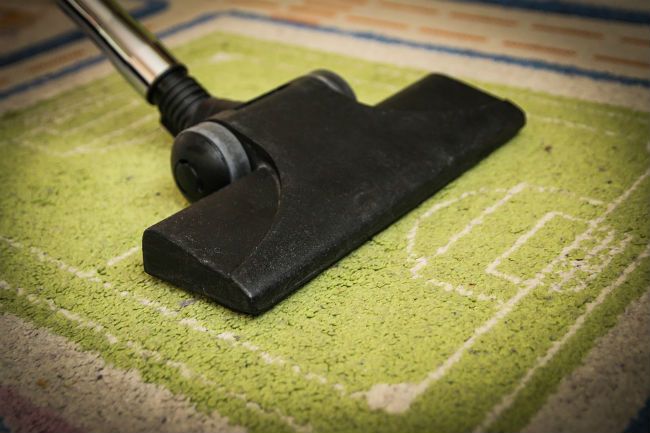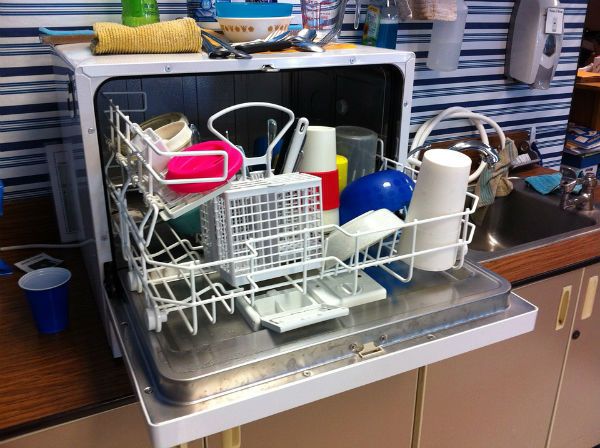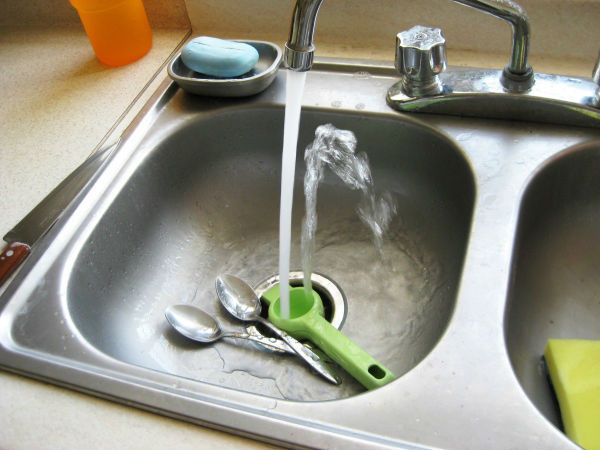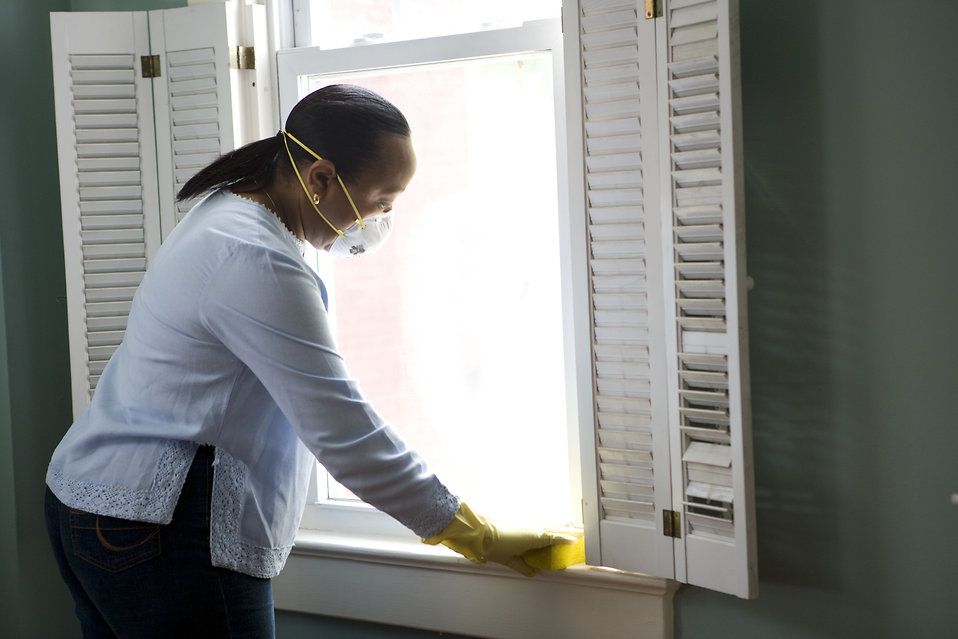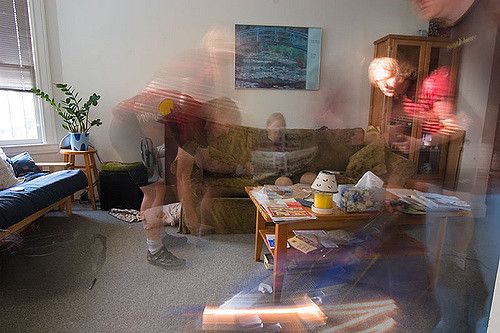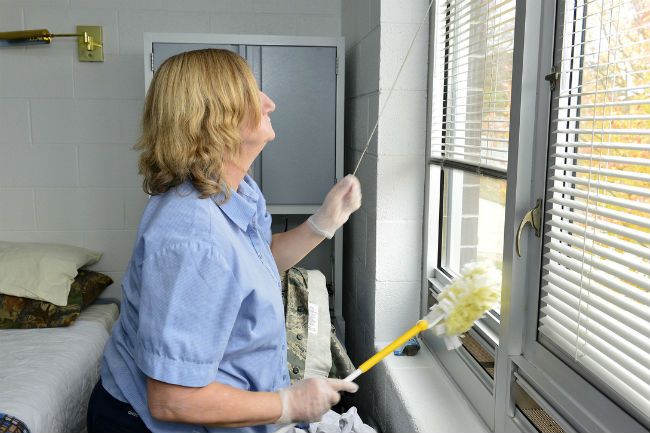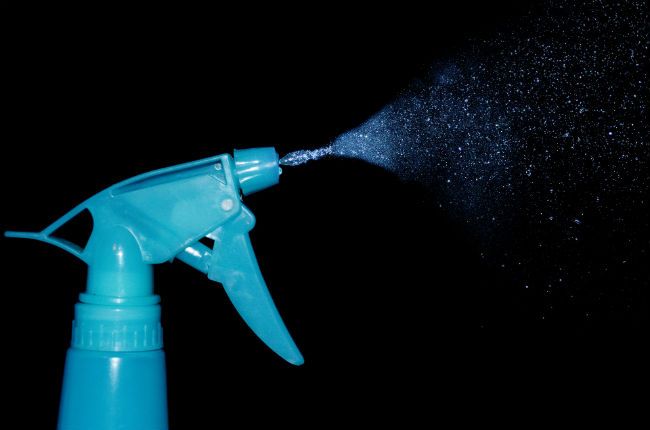I like to think of myself as a pragmatic neat freak.
I prefer my home to be nice and tidy, but I would rather somebody else did all the hard work.
Over the years, I've learned some time-saving ways to keep my home spotless. But I've also realized that some cleaning shortcuts leave your home looking just nasty.
Avoid these 11 lazy cleaning habits and your home will look much nicer:
1. Replacing the toilet brush after using it
You notice there are some ugly stains in your toilet bowl. That's bad.
You clean them with the brush. That's good.
Now, do you put that wet brush back in the container? Because that's very bad.
The moist brush is crawling with bacteria. Stow it inside the container, and it will take longer to dry out, letting that bacteria multiply and survive even longer.
Then, that same messy brush gets rubbed back on your toilet.
Break the cycle by letting the brush dry out before putting it back in the container. Pouring in some Pine-Sol to freshen up the brush doesn't hurt either.
2. Doing the easy cleaning jobs first
There's a reason dust bunnies collect behind the TV and under the couch. We leave the toughest cleaning jobs much longer than we should.
But doing the easy jobs by default can make even more work for yourself.
Say you sweep the floor daily, but only dust the top of your shelves once a week. You're bound to make your floor dirty again, and spend even more time cleaning up after yourself.
Follow the top-to-bottom order when cleaning an entire room to save work:
- Dust high surfaces like the tops of shelves and cabinets first
- Move on to tables, counters, then seats and sofas
- Finally, sweep or clean the floors, where the dust you knocked down has collected itself
3. Ignoring your cutting boards
Do you clean your cutting board in warm, soapy water after every use? That's good, but it's probably still not clean.
Cuts in the board's surface collect tiny pieces of food, which eventually gather bacteria and go moldy.
If your board has a set-in stink, this is why.
You need to regularly give it a serious wash, ideally by soaking it in hydrogen peroxide or a bleach solution.
Afterwards, be sure to rinse the board thoroughly and dry it off.
4. Dragging germs from one room to the next
I used to keep a trusty "cleaning rag" under the sink for all kinds of jobs. But this habit is actually nasty, and could make your family sick.
Even if the rag is sprayed with cleaning solution, it will carry germs from room to room. That means you could be spreading them from your bathroom to your kitchen if you're not careful.
Either keep a designated cloth for every room of the house (ideally one you can machine-wash) or use disposable paper towels for each individual job.
5. Cleaning with a dirty vacuum
I know, I know, you've been meaning to change or clean that filter for months, but you're so busy.
Well, here's why you should move this chore to the top of your to-do list:
When a vacuum filter is caked with dust, the machine's suction suffers, leaving more and more dirt sitting in your carpet.
The machine will also release some of that dirt back onto your carpet, making it look dirtier than when you started!
6. Throwing everything in the dishwasher
Your dishwasher is a surprisingly finicky appliance.
Yes, it's great for cleaning grimy dishes and utensils, along with some other surprising things.
But you should keep specialized kitchen tools out of this machine as much as possible.
Garlic presses, zesters, graters, and odd odd-shaped tools with nooks, crannies, and holes are not suited for the dishwasher.
It's best to clean them by hand with soap and water, making sure to carefully check all of the holes for food residue which could grow mold.
7. Ignoring your sink
Bad news: the sink you clean your dishes in could be even dirtier than they are.
Most people don't realize, but warm water and dish soap won't automatically clean the dirty residue from your sink basin.
Plus, your drain is probably caked with sticky food gunk.
You should regularly clean them both using baking soda. It will keep your family from getting sick, and help prevent annoying clogs.
8. Spraying your windows (or other surfaces)
Read the directions on most cleaning supplies and you may be in for a shock.
They usually recommend spraying the solution onto a cloth and wiping it on, not spraying the dirty surface directly.
The reason is that spraying onto a surface often leaves a streaky residue.
Dust or dirt will stick to this, which makes the surface look even dirtier than before. Instead, spray carefully on a wipe and apply the solution evenly to avoid streaks.
If streaky mirrors are a particular problem, try this trick to make them shine.
9. Cleaning too quickly
Speaking of following the directions, here's an important piece of advice from the cleaning product label almost everyone ignores: wait.
You may be in a rush to clean your bathroom and watch TV, but some products take minutes to set in and do their work.
If you rinse them off immediately, you won't accomplish much and cleaning will actually take longer in the end.
10. Using a feather duster
They're a tried and trusted cleaning tool, but the truth is dusters just don't work - because they don't really trap dust, just move it around.
More often than not, you'll wind up "cleaning" a shelf by sprinkling dust all over your floor.
Instead, attach a microfiber cloth to your duster handle. The rag will actually lock in the dust.
There are other tricks for hard-to-reach places. For instance, a pillow case is perfect for dusting your ceiling fan.
11. Using too much product
It can be tempting to douse a tough job in cleaning solution, hoping that it will make the work go faster.
But this can backfire, especially while doing laundry.
Even the gentlest cleaning product will trap dust and dirt, so using too much will leave a surface looking messy.
Using extra detergent or soap can also stain or discolor clothes.
Just so you know, Shared may collect a share of sales or other compensation from some of the links on this page. However, we only choose products we would or have purchased ourselves.
